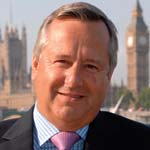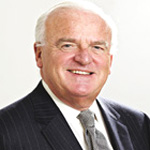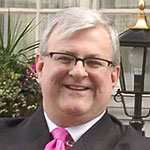What makes a good leader?
Are good leaders born or made? And what's the difference between a great leader and a great manager? Emily Manson asks some of the industry's leading lights to share their tips, advice and experience
Former US President Eisenhower once defined leadership as: "The art of getting someone else to do something you want done because he wants to do it."
But how is it possible to achieve this? What characteristics do leaders need to engage employees? Can these attributes be learned, or are they simply intrinsic skills?
The Forte Legacy
It's impossible to talk about hospitality leaders without acknowledging the role of Lord Charles Forte and his empire, which for half a century employed and trained so many of the sector's current leaders.
Lord Forte's dynamism, charisma and autocratic leadership style is legendary. His son Sir Rocco says: "Things were much more formal and hierarchical in my father's time. His great skill was focussing on the bigger issues and opportunities while others were running around in circles not being able to see the wood for the trees."
Travelodge chairman Grant Hearn adds: "People used to do things for you because they had to, but the autocratic nature of hospitality when I was starting out is very different now. People won't put up with being told what to do. They want a relationship and to know why they're doing it, and what it will do for them."
Donald Sloane, head of hospitality at Oxford Brookes University, agrees: "The ‘great man' theory of leadership has traditionally prevailed in the UK hospitality industry," he says.
But more recently, he has seen greater acknowledgement of the value of leadership that is ‘transformational'. "This relies on articulating a very clear vision; stimulating colleagues to be creative and to challenge the status quo; and empowering and trusting colleagues to deliver. This approach encourages inspirational leadership, built on respect rather than domination," he says.
Today's world
Today's world of corporate governance, legislation and financial markets means many leaders need short term success. But to achieve this they need buy-in from employees on the company and its direction. Michael Hirst, chairman of Business Visits & Events Partnership, consultant to CB Richard Ellis and former chief executive of Hilton International, explains: "It's become a very head office-centric corporate world, whereas previously head offices were much more operational and part of running the business.
"Especially for public companies, the corporate governance and paperwork now required means leaders don't have as much time to spend on a business's operational issues and that makes them more distant than before."
Style and Expertise
Hirst has also noticed a change in the type of people at the top. "Today different skills are needed. First it was accountants, then marketeers and now it's a rich mix and that's right as business is changing all the time," he says.
"It's not just about running operations any more; it's far more complex. Leaders need to be able to deal with big corporate requirements like management of figures and brand promotion." But he argues that, despite this, some skills are still key, such as the ‘mein host' personality, good communication skills, innovation and the ability to get a good team to support its leader.
Comparing his leadership style today to his father's, Sir Rocco says: "Things are more relaxed today in terms of how people communicate with each other. I listen to my top team and encourage them to speak, as I value good advice. Listening to people's views is important so long as you're able to take the decision when it's needed."
Leadership types
Joel Fagg, operations manager at Barcelo Walton Hall & Hotel, near Stratford upon Avon, and this year's Acorn Scholarship winner, has found that leaders' management styles can vary - as can their techniques to bring the team along. "They range from those who coach alongside the team, to those who stand back and let the team roll with their ideas, but just ensure they don't go too far off piste," he says.
Former head of Gardner Merchant, Sir Garry Hawkes admits that although there's a difference between different leaders and management styles, he doesn't differentiate between the sexes. "As all management is leading by example, I believe in the power of the individual, not male or female - there's no special brand of person that makes a leader. They need to be able to articulate their vision and motivate other people towards it. Both men and women can be good - and bad - at this."
Hirst cites Bill Marriott, Sir David Michels and Andy Cosslett as prime examples of leading from the front. "Leadership is very much about being out there, knowing your business inside and out." The common factor is that they all spent a lot of time out and about meeting employees and, according to Hirst, "have shown over the years that you can run a big business and still retain a human touch."
Hearn also acknowledges that whatever changes occur in the market place, the human factor is still key. "It's a hard industry and if you make it about more than just their shifts, then that's a huge motivator and makes the job much more worthwhile."
Hawkes adds: "It's still about harnessing human nature. It's as much about emotional intelligence as academic. Motivating people to achieve success comes from within a person not forces outside."
Leaders: Born or made?
But Hawkes is less sure on the nature or nurture question of leadership. He says: "It's definitely possible to learn to be a manager but there are intrinsic elements of leadership - clarity of vision, capacity to communicate, an ego, self-belief and security of personality and daring to be different. There's no stereotype, but when it's there you recognise it."
However Sloane maintains that leadership can be, to some extent, learned. "Our aim is to produce graduates who recognise that they may have leadership potential," he says, while Fagg adds: "Leadership skills can be developed but some people are just never going to be a leader. You have to have some core skills inside you to begin with."
Top Qualities of Good Managers
â- People management - including motivational, influencing and negotiation skills
â- Business management skills - including good leadership and financial aptitude
â- Strategic planning - the ability to take a cross-departmental view
â- Efficiency: through excellent organisational skills
â- Decision-making skills and the ability to delegate
â- Problem solving and conflict resolution
â- The ability to deliver results and be target-driven
â- Technical skills and attention to detail
â- Coaching and training skills
Top Qualities of Good Leaders
â- Communicate effectively - your followers must understand your vision to want to be a part of it
â- Vision and strategy - have a clear idea of what you want to do and plan how to get the business there
â- Passion and drive - believe in what you're doing
â- Lead by example - have integrity and be honest
â- Hire a good team, who compliment your skills, and delegate
â- Know your business and your people
â- Don't be afraid to make tough decisions
â- Like people and manage relationships - the art of persuasion is vital
â- Don't forget to listen and never stop learning
The difference between a manager and a leader
A general manager, or site manager is, after all, the leader of that particular operation. But there are some significant differences, the key difference being that some management skills can be argued to be less intrinsic and therefore more able to be learnt.
This is what you had to say on Caterer and Hotelkeeper‘s industry forum, TableTalk
Philip Newman-Hall, general manager, Le Manoir aux Quat'Saisons Great leaders shine because of their vision, drive, inspiration, enthusiasm and the way that they bring other individuals along with them on their journey. Great leaders employ the right people around them to ensure that their vision materialises and to empower them to deliver. Great managers tend to be the people who then bring the leader's ideas to life and deal with the delivery of the leader's vision.
Caroline Cooper, Zeal Coaching There are three key aspects to being a good leader; have a clear (and inspiring) vision and be able to communicate this effectively; the ability to be receptive to people's needs; and give credit where it's due, providing encouragement to work towards the vision. It is then the manager's role to define the detail on how this will be achieved.
Tash Newby One of my business directors was an absolute leader - he painted a future vision that was compelling and important and empowered me to run with it. I then cascaded this down to the team. The other was a brilliant manager. He put in place systems and procedures and made it possible for his partner's big dreams to come to life.
FoodFan A good leader does not have to be a manager. A leader is should be someone who inspires and encourages. You don't always get that from a manager.
Great Leaders The view from the top
Know your business - learn from the past and plan for the future. Get your facts right before making decisions, be decisive, be tough but be fair. Learn from people who have lots of experience and always be prepared to learn.
A leader must also be recognised in the industry and make employees feel privileged to be part of that company, its ethos and goals.
You also need to be an effective communicator and nowadays it's particularly helpful to have a head for figures. If you can't do figures, surround yourself with a team who can.
No one has the whole package but you need to have the basics: lead by example, communicate well, occasionally take risks, and find a team that complements your skills.
A good leader needs to be someone who can encourage people in the business to put forward their own ideas without being frightened. Companies depend, in the long run, on lots of little ideas, so it's crucial these are encouraged.
One of the main characteristics of a leader therefore is to be receptive to - and encourage - criticism. Mix that with a dose of common sense and a sense of humour and persistence, and that'll produce leaders to rival Microsoft.
Leadership and management do overlap, but essentially management is about climbing the ladder of success and leadership is making sure the ladder is against the right wall. If you can't outline what the destination looks and feels like to your team, why would they go on that journey with you?
Leaders need mental and physical toughness, an ability to take responsibility when things go wrong and also be very demanding of the people who work around them. The important thing is to be there at the critical times. Obviously people take holidays, but you have to live your job.
Leadership skills haven't changed because humans haven't changed. The only difference today is that there's more information out there, so it's harder for a leader to lead. People don't look up to a leader and trust them instinctively any more. Finally, you have to like people - you don't lead a company; you lead human beings.
You have to constantly take into account the human dimension and distribute power and responsibility in equity. At Gardiner Merchant, this was done by geography - we had 3,000 sites in 30 countries. It was about empowering those people, wherever their operation was, to run it our way, and have that way mutually agreed. That was the skill and that's where training and development came in to ensure a consistent ethos throughout the company.
Reward behaviour you want to see, create role models and be one yourself. A leader must be confident, and able to make brave decisions but also be approachable and be seen to give something of themself to the cause. It's important to lead from the front but also alongside your people.
Leaders need to be strong, tough, as transparent as possible, fair and give others a chance to succeed. Part of creating the story is also about creating aspiration.
Leaders gather, nurture and then let go of their team when they are ready to fly on their own. A good leader will see their team outgrow their vision and move on to their own goals. Leadership is about a group of people though, otherwise, you're just an idiot standing on your own with a vision you're never going to achieve.
Further leadership information
Inspiring Future Hospitality Leaders Conference 10 October 2011
Barcelo Walton Hall & Hotel, near Stratford upon Avon
Free to attend (aimed at 18-22 year olds)
For more information email joel.fagg@btopenworld.com
The Edge Hotel School Offers degree courses, accredited by the University of Essex, within a commercial hotel environment. Due to open early 2012.
www.edge.co.uk
Leadership MA, Strathclyde University & HIT Scotland's Emerging Talent Scholarships Designed to encourage leadership and raise aspirations across the hospitality industry, entries for the 2012 programme open on 2 September. To apply for a £100,000 Hospitality Scholarship programme visit
www.hitscotland.org
http://www.caterersearch.com/Articles/15/09/2011/340273/just-what-does-it-take-to-be-a-true-leader.htm" target="_blank" rel="noreferrer">
Just what does it take to be a true leader? >>






















